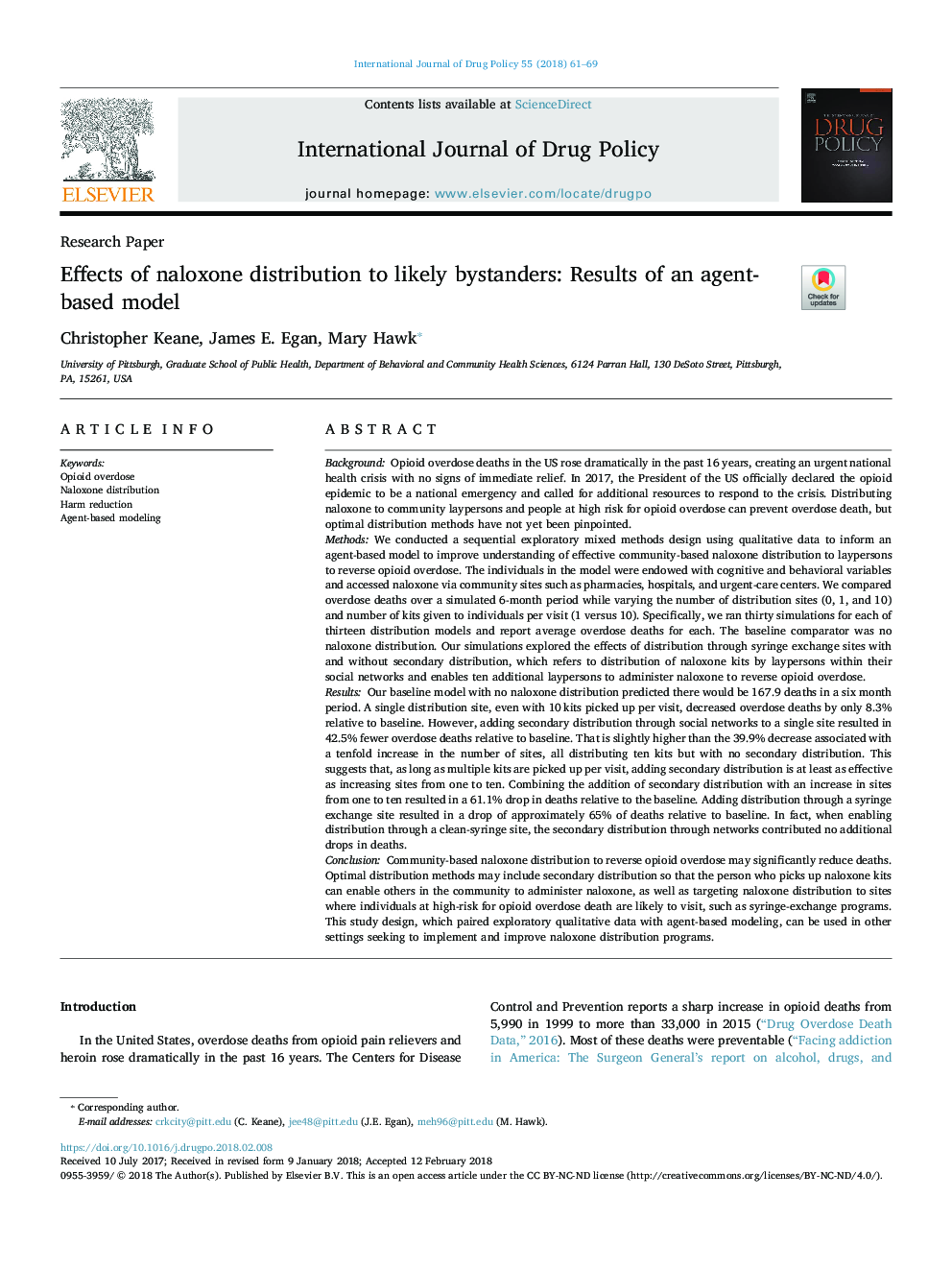| Article ID | Journal | Published Year | Pages | File Type |
|---|---|---|---|---|
| 7512009 | International Journal of Drug Policy | 2018 | 9 Pages |
Abstract
Community-based naloxone distribution to reverse opioid overdose may significantly reduce deaths. Optimal distribution methods may include secondary distribution so that the person who picks up naloxone kits can enable others in the community to administer naloxone, as well as targeting naloxone distribution to sites where individuals at high-risk for opioid overdose death are likely to visit, such as syringe-exchange programs. This study design, which paired exploratory qualitative data with agent-based modeling, can be used in other settings seeking to implement and improve naloxone distribution programs.
Related Topics
Health Sciences
Medicine and Dentistry
Psychiatry and Mental Health
Authors
Christopher Keane, James E. Egan, Mary Hawk,
